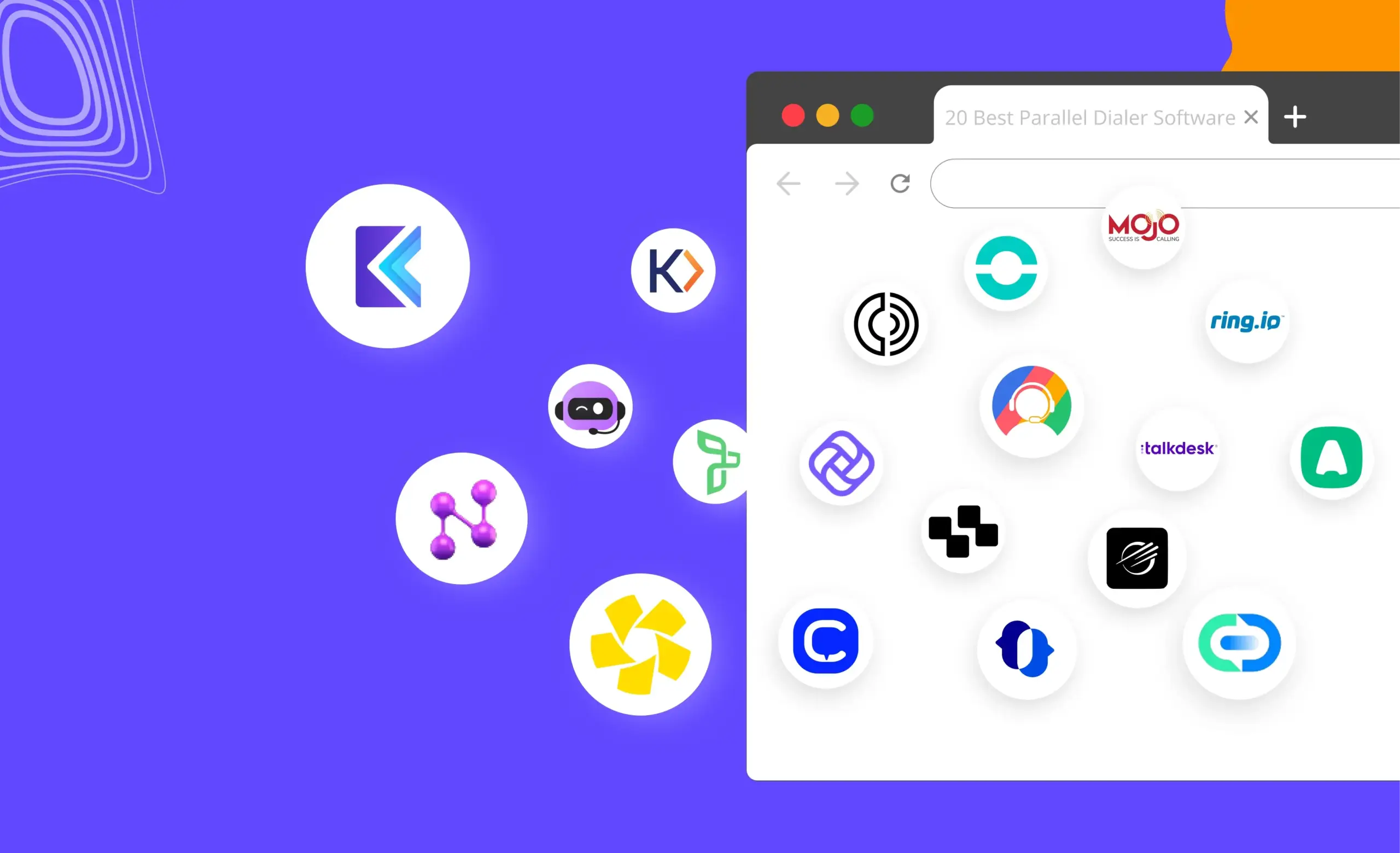If your business handles a lot of incoming calls, you know how chaotic things can get without the right system in place.
Long wait times, dropped calls, and endless transfers are frustrating for your customers and exhausting for your team. These are the kinds of headaches that not only waste time but also hurt your reputation and brand value.
No matter what industry you’re in, if heavy inbound calls are part of your daily routine, you need a solution that keeps things running smoothly.
To prevent these costly missteps, implementing a robust call routing system is essential. It makes sure every call gets to the right person quickly, keeping your customers happy and your team efficient.
In this article, we’ll dive into how the right call routing system can make a big difference in how you handle incoming calls, helping your business operate more effectively and leaving a great impression on your customers.
What Is Call Routing?
Call routing is the process of receiving incoming calls and directing them to the most appropriate person or team based on predefined rules or algorithms. As soon as the call is initiated, the system evaluates multiple factors to determine the optimal path for the call.
How Does Call Routing Work?
The tools offering call routing will be able to identify the caller, apply the routing logic after evaluating the call, and transfer the call to the right sales rep or agent.

1. Call Identification:
When an incoming call is received, systems equipped with Interactive Voice Response (IVR) interact with the caller. The IVR collects input via key presses or voice commands, which helps categorize the call (e.g., sales, support, etc.) and determine the purpose of the call.
2. Call Evaluation:
In this phase, the Automatic Call Distribution (ACD) system evaluates whether the caller is a new or returning customer. Based on the collected inputs and pre-configured rules, the ACD identifies the most appropriate team or representative to handle the call. This process ensures that returning callers can be prioritized or sent to the correct department based on their history.
3. Call Distribution:
In this phase, calls are routed to the appropriate agent based on predefined rules, taking into account various factors. Multiple routing algorithms can be applied, tailored to your specific business requirements.
Different Types of Call Routing Systems:
There are several types of call routing systems that you can consider to suit your call environment:
1. Simultaneous Call Routing:
In this system, calls ring all available representatives simultaneously. The first rep to answer takes the call, ensuring the fastest possible response time. It is best for teams that prioritize quick response rates.
2. Sequential Call Routing:
Calls are directed to reps in a predetermined order, switching to the next rep in line if the previous one doesn’t answer within a set time frame. Sequential routing is ideal for teams that need structured routing or specialized rep assignment.
3. Round-Robin Call Routing:
Calls are distributed evenly across representatives in a rotating cycle, ensuring equal call distribution and preventing overload on any one rep.This routing is great for teams where all reps handle similar types of calls.
4. Time-Based Call Routing:
Calls are routed based on the time of day or the availability of certain reps, perfect for companies with international clients or differing business hours which is best suited for organizations with global clientele or shifting rep availability.
5. Skills-Based Call Routing:
Calls are directed to the rep with the most relevant expertise based on the nature of the call. This is ideal for complex sales environments where calls require specialized knowledge.
6. Priority-Based Call Routing:
High-priority calls, such as those from VIP clients or urgent inquiries, are routed to the most skilled or senior reps, while other calls are placed in a lower-priority queue. This routing is essential for businesses that manage high-value clients or time-sensitive inquiries, ensuring that critical calls are handled first.
Each of these systems can be customized to fit your organization's unique needs, ensuring your team can manage customer interactions effectively and efficiently.
How Does Dial IQ Automate Your Call Routing?
Klenty’s Dial IQ is designed to automate call routing with a range of advanced features, helping businesses streamline their inbound call management process. Whether you’re dealing with high call volumes or looking to provide a personalized customer experience, Dial IQ offers a streamlined call management.
Here’s a closer look at how Dial IQ stands out as a comprehensive call routing solution:
1. Call Routing Systems Offered by Dial IQ
Dial IQ offers three different call routing systems - ‘Default’, ‘Sequential’ and ‘Simultaneous’ which can be tailored to your business needs.

Default Call Routing :
The default call routing system is the Priority - Based Routing that checks if the caller has called before and assigns the representative based on this history.
Default Call Routing works best when your inbound volume is low and you expect repeated callers. It efficiently handles calls by connecting returning prospects with the most recent representative they interacted with, providing a personalized touch.
Sequential Call Routing:
Calls are routed to representatives in a specific order. You can configure the sequence and set intervals for switching to the next rep if the previous one doesn't answer.

Simultaneous Call Routing:
Calls ring all available reps simultaneously. Once a representative picks up, the call is disconnected for the remaining reps, ensuring the fastest response time.
The Smart Routing System is ideal for handling high inbound volumes and managing new callers daily. It ensures efficient call distribution to meet the demands of a busy environment.

2. Interactive Voice Response (IVR) - Coming Soon :
The IVR system in Dial IQ allows callers to interact with a pre-recorded menu to direct their calls. This enables callers to select options based on their needs, such as reaching sales, support, or specific departments, without needing live assistance.
It automates the initial call handling process, saving time and helping callers reach the right agent more quickly.
3. Automatic Call Distribution (ACD) - Coming Soon :
Dial IQ’s Automatic Call Distributor intelligently routes calls to the appropriate representative based on predefined criteria, such as caller information, call volume, or representative availability.
Here, the calls are directed to the most suitable agent swiftly and effectively, saving time and improving the overall efficiency of call handling.
4. Caller ID Identification :
Dial IQ displays detailed information about the incoming callers if they are already in your prospect list. It includes the caller’s name, contact details, and previous interaction history.
By providing representatives with the context of the call before answering, Dial IQ facilitates a more informed response which helps the representative to quickly address the caller’s needs.
5. CRM Integration :
Dial IQ integrates seamlessly with CRM systems, offering valuable features that reduce manual administrative tasks:
- Automatic CRM Logging: Call details are automatically logged into your CRM, ensuring accurate and up-to-date records.
- Call Recording: All calls are recorded and stored for future reference and quality assurance.
- Automated Follow-Ups: Follow-up tasks are automated based on call outcomes, simplifying the process and ensuring timely responses.
6. Call Forwarding and Voicemail Drop :
Dial IQ’s Call Forwarding feature ensures that even if a prospect calls outside business hours or while a representative is unavailable, their call won’t go unanswered. By forwarding calls to an alternative number, businesses can guarantee that every important call is addressed promptly.
Also, in cases where a representative cannot answer, Dial IQ can be configured to notify a specific agent of the missed call and deliver a custom voicemail to the caller. It ensures prompt follow-up and leaves a professional impression even if the call is missed.
Call routing significantly boosts sales by enhancing productivity through better resource allocation, ensuring fewer missed calls and higher connect rates. It also improves call resolution rates by connecting prospects with the right agents, leading to higher customer satisfaction.





